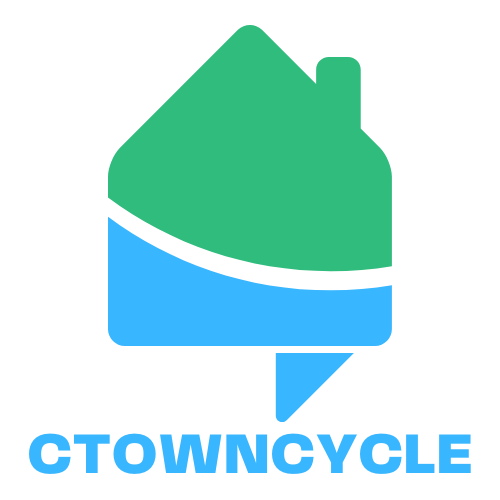Table of Contents
ToggleIn the bustling world of real estate, standing out can feel like trying to find a needle in a haystack. But what if the key to unlocking a treasure trove of clients lies in the simple art of referral marketing? Picture this: a steady stream of leads flowing in without the need for endless cold calls or awkward networking events. It’s like having a personal cheerleading squad, only they’re not wearing pom-poms—they’re handing you keys to new homes.
Real estate agent referral marketing isn’t just a trend; it’s a game changer. By leveraging existing relationships and satisfied clients, agents can create a powerful network that works for them. Dive into the world of referrals, and discover how a little bit of trust can lead to big rewards. Who knew that making friends could be so profitable?
Overview of Real Estate Agent Referral Marketing
Real estate agent referral marketing serves as an essential strategy in attracting clients through trusted relationships. Utilizing connections allows agents to expand their reach and can help them grow their clientele effectively. Agents cultivate strong relationships with clients by prioritizing exceptional service, which often leads to referrals.
A strong referral network emerges from satisfied clients who genuinely recommend agents to their networks. Generating referrals typically requires agents to leverage both personal interactions and digital platforms, enhancing visibility. Trust acts as a significant factor; potential clients are more likely to engage with agents who come highly recommended.
Building a referral marketing strategy involves several key components. Agents can focus on delivering outstanding experiences, collecting testimonials, and maintaining consistent communications. Recognizing milestones in existing relationships helps agents stay top-of-mind among clients.
According to the National Association of Realtors, approximately 39% of home buyers found their agents through referrals. This statistic underlines the significance of referral marketing in the real estate sector. Successful agents frequently ask for referrals and create incentives for clients who provide them.
Moreover, utilizing social media platforms further strengthens the potential for referrals. Posting client successes on platforms like Facebook and Instagram keeps agents connected and engaged with their audience. Consistently showcasing expertise and achievements reinforces credibility.
Engaging in community events also enhances an agent’s visibility, naturally generating referrals. Participation highlights an agent’s commitment to the community while fostering relationships that can lead to future business. Ultimately, successful referral marketing results in increased leads and business growth, making it a valuable approach for real estate agents.
Importance of Referral Marketing in Real Estate
Referral marketing plays a crucial role in the real estate industry. It enables agents to attract clients through established relationships, minimizing the need for cold outreach.
Building Trust and Credibility
Trust and credibility are foundational to successful referral marketing. Satisfied clients become advocates for agents, sharing their positive experiences with friends and family. Agents gain credibility when previous clients provide testimonials, reinforcing their expertise. Building these relationships requires consistent communication and an emphasis on delivering exceptional service. Since 39% of home buyers find agents through referrals, agents must prioritize relationship-building to establish themselves in the market. Creating a reputation for reliability fosters trust, ultimately leading to more referrals.
Enhancing Client Relationships
Enhancing client relationships significantly impacts referral marketing. Exceptional service encourages satisfied clients to spread the word about their experiences. Regular follow-ups and personalized communication can strengthen these connections. Agents who engage with clients both digitally and personally foster loyalty. Utilizing social media effectively keeps agents top-of-mind for potential referrals. Attending community events also helps agents build rapport with existing and potential clients. Strong relationships create a network of trust, leading to increased referrals and business opportunities.
Strategies for Effective Referral Marketing
Referral marketing in real estate benefits significantly from well-structured strategies. Implementing these strategies enhances agent visibility and fosters client trust.
Creating a Referral Program
Agents establish a referral program by offering incentives for client referrals. Clear guidelines for participation maximize engagement. Agents can provide rewards such as gift cards or discounts on services to motivate clients. Tracking referrals is essential for evaluating the program’s success. Digital tools can aid in managing referrals efficiently. By recognizing and appreciating clients who provide referrals, agents build stronger relationships and encourage more referrals in the future.
Leveraging Social Media
Social media platforms act as powerful tools for attracting referrals. Agents can showcase their satisfied clients’ testimonials through posts and stories. Engaging with the community online fosters stronger connections and trust. Sharing valuable real estate tips and local market insights helps agents position themselves as industry experts. Consistent interaction with followers creates a loyal audience willing to refer new clients. By utilizing platforms like Facebook, Instagram, and LinkedIn effectively, agents expand their reach and enhance referral opportunities.
Measuring the Success of Referral Marketing
Measuring referral marketing success involves evaluating various aspects of performance and identifying the most effective sources of referrals. Tracking these elements provides insights into an agent’s marketing effectiveness.
Key Performance Indicators
Key performance indicators (KPIs) serve as benchmarks for assessing the effectiveness of referral marketing. Important metrics include the number of referrals received, the conversion rate of referrals into clients, and the overall return on investment. Agents often calculate conversion rates by dividing the number of closed deals from referrals by the total referrals received. Additionally, monitoring the average value of referred clients helps in understanding financial impacts. An increment in satisfied clients can boost referrals, generating steady growth in business.
Analyzing Referral Sources
Analyzing referral sources reveals where leads originate and which relationships yield the best results. Agents categorize sources into personal referrals, online referrals, and professional networks. Each channel can demonstrate varying degrees of effectiveness. Personal referrals from friends or family often convert at higher rates, while online platforms foster broader outreach. Regularly evaluating these sources allows agents to adjust their strategies, focusing on the most productive channels. By understanding which sources lead to successful transactions, agents can enhance relationships and create targeted marketing efforts that foster loyalty and encourage future referrals.
Challenges in Referral Marketing
Referral marketing presents several challenges that agents must navigate to optimize their strategies. Building trust with potential clients can be difficult, especially in a crowded market. Agents often face skepticism, where prospects may question the motivations of those providing referrals.
Changing communication preferences complicate the referral process. It’s essential for agents to adjust their approach based on the clients’ preferred platforms. Failing to utilize digital tools effectively limits outreach, reducing referral potential.
Measuring success in referral marketing poses another challenge. Evaluating the effectiveness of various referral sources is key for agents to understand where to focus efforts. Tracking metrics like conversion rates and customer relationships helps identify strengths and weaknesses.
Agents also encounter the challenge of maintaining client engagement over time. Regular communication fosters loyalty, yet many agents struggle to consistently follow up with their clients. Inadequate follow-up can lead to lost referrals, highlighting the necessity of a structured communication plan.
Creating incentives for client referrals can prove difficult as well. Agents must design attractive programs without overspending. Balancing the cost of incentives with potential returns on investment is crucial for long-term success.
Lastly, competition in the real estate market is fierce. Distinguishing oneself among peers requires innovative strategies and unique value propositions. Real estate agents need to stay informed about industry trends to enhance their referral marketing efforts. Adapting to these challenges ensures agents can capitalize on the benefits of referral marketing effectively.
Real estate agent referral marketing stands as a vital strategy for success in a competitive landscape. By focusing on building trust and nurturing relationships, agents can transform satisfied clients into powerful advocates. Implementing structured referral programs and leveraging digital platforms enhances visibility and engagement, paving the way for increased leads.
Staying attuned to client preferences and maintaining consistent communication are essential for fostering loyalty and encouraging referrals. As agents adapt to the challenges of the market, those who prioritize exceptional service and innovative strategies will find themselves reaping the rewards of a robust referral network. Embracing this approach not only sets agents apart but also drives sustainable business growth.




